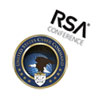 SAN FRANCISCO — The U.S. Military’s top officer in charge of cyber security said that the country must invest more in so-called “STEM” programs – science, technology, engineering and math – to avoid being outflanked in a world where cyber offensive- and defensive operations are the keys to military victory.
SAN FRANCISCO — The U.S. Military’s top officer in charge of cyber security said that the country must invest more in so-called “STEM” programs – science, technology, engineering and math – to avoid being outflanked in a world where cyber offensive- and defensive operations are the keys to military victory.
Speaking at the RSA Security Conference in San Francisco on Thursday, General Keith Alexander, Director of the U.S. Cyber Command, said that the U.S. Military had made strides in the realm of cyber security with the creation of a unified Cyber Command, but that broader, national programs of digital literacy and investment in core sciences were needed to ensure the nation’s long term security.
“We need to concurrently push STEM and educate the public about what goes on on these networks so that we can fix it as a team. We need your help to do that,” he told an audience of security technology professionals and entrepeneurs.
Citing the example of computer science pioneer Grace Hopper, as well as industry giants like Bill Gates, Steve Jobs, Sergei Brin and Mark Zuckerberg, Alexander said a country with the talent to create “great tools” should also be able to muster the expertise necessary to secure the cyber domain in a way that doesn’t sacrifice civil liberties.
Education at the elementary and secondary level, he said, were critical to that. “We can’t let the advantages we’ve had in the past erode the future,” Alexander said.
Tech and communications industry players need to band together with government to create a kind of “cyber force” that is capble of protecting the nation’s critical infrastructure from compromise. The military and intelligence communities, for example, might forge agreements with private sector players by which they could provide intelligence and early warnings about brewing threats or problems, while the private sector – which owns much of the nation’s critical infrastructure – will be responsible for defending those resources from what Alexander described as sophisticated adversaries and malicious insiders.
As for the recently formed Cyber Command that he heads, Alexander said that the unified command structure was a huge asset to the Department of Defense, which operates 15,000 separate networks. But the General warned that the U.S. Government can’t rely on “static defenses” in the cyber realm. Likening such an approach to the French Maginot Line, which Hitler bypassed in his invasion of the country at the outset of World War II, Alexander said the government, military and private sector needed a “team based” and flexible approach to address new cyber threats.









